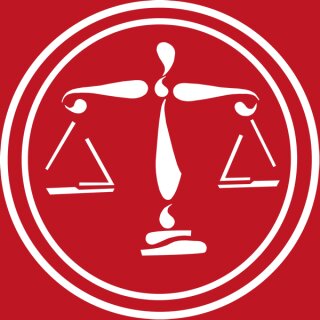Best Discrimination Lawyers in Asunción
Share your needs with us, get contacted by law firms.
Free. Takes 2 min.
List of the best lawyers in Asunción, Paraguay
About Discrimination Law in Asunción, Paraguay
Discrimination in Asunción, Paraguay, is an issue that the country is progressively addressing through a combination of international commitments and national legislation. Paraguay has ratified several international conventions that aim to combat discrimination in various forms, especially within employment, education, and public services. Despite these efforts, challenges still exist, and individuals facing discrimination may need legal guidance to navigate the complexities of these laws and ensure their rights are protected.
Why You May Need a Lawyer
Legal assistance may be necessary in a variety of situations related to discrimination. You might face bias based on race, ethnicity, gender, sexual orientation, disability, or other protected characteristics in workplaces, educational institutions, or when accessing public services. A lawyer can help in understanding your rights, filing complaints, and taking legal action if necessary. Moreover, legal counsel is invaluable in negotiating settlements or representing your case in court to ensure fair treatment and justice.
Local Laws Overview
The key aspects of local laws relevant to discrimination in Asunción, Paraguay largely derive from its constitution and international treaties. The Paraguayan Constitution guarantees equality and prohibits discrimination, requiring the government to take measures against all forms of discrimination. Additionally, local anti-discrimination laws address specific areas, such as labor discrimination, providing frameworks for affected individuals to seek redress. However, implementation remains an area needing robust improvements, making legal guidance crucial for navigating these issues.
Frequently Asked Questions
What types of discrimination are recognized by law in Paraguay?
Paraguayan law recognizes various types of discrimination, including but not limited to race, gender, age, sexual orientation, and disability. The law seeks to protect against discrimination in areas such as employment, education, and public services.
How do I know if I am facing illegal discrimination?
If you are treated unfavorably or experience a systematic denial of rights compared to others because of personal characteristics like race or gender, it may constitute illegal discrimination. Consulting with a lawyer can help clarify your situation.
What should I do if I am discriminated against at work?
Document incidents of discrimination, gather evidence, and consult a lawyer who specializes in employment discrimination to explore the possibility of filing a complaint with the appropriate legal bodies or taking legal action.
Are there any local organizations that provide support to discrimination victims?
Yes, there are organizations such as the Office of the Public Defender and various non-governmental organizations dedicated to supporting victims of discrimination through legal assistance and advocacy.
How long do I have to file a discrimination complaint?
Time limits for filing a complaint can vary depending on the type of discrimination and the relevant legal procedures. It is advisable to seek legal counsel promptly to ensure you observe all applicable deadlines.
Is it possible to settle discrimination cases out of court?
Yes, many discrimination cases are settled out of court through mediation or negotiation. An experienced lawyer can help negotiate a fair settlement on your behalf.
How does Paraguayan law protect against discrimination in education?
Paraguayan law mandates equal access to education and prohibits discrimination in educational settings based on race, gender, disability, and other protected characteristics.
What role does the government play in combating discrimination?
The Paraguayan government enforces anti-discrimination laws and works to promote equality through legislation, public policy, and the work of bodies like the Ministry of Justice.
Can I file a discrimination complaint anonymously?
While the process often requires identification to pursue legal action, certain bodies or organizations might allow anonymous reporting to initiate preliminary investigations.
What evidence is needed to prove discrimination?
The evidence may include documented communications, witness statements, patterns of treatment compared to others, and any official procedures or policies that may highlight discriminatory practices.
Additional Resources
For further assistance, individuals facing discrimination can reach out to the Office of the Public Defender for legal aid, human rights organizations that focus on equality issues, and the Ministry of Labor for employment-related discrimination issues. These bodies offer resources, support, and often legal guidance to help navigate discrimination claims.
Next Steps
If you suspect you are facing discrimination, the first step is to seek legal consultation. Document your experiences and gather any evidence related to the discrimination you face. Contact a lawyer who specializes in discrimination cases to explore filing a complaint or initiating a lawsuit. Legal professionals can also provide representation in negotiations or court proceedings to fight for your rights and ensure justice.
Lawzana helps you find the best lawyers and law firms in Asunción through a curated and pre-screened list of qualified legal professionals. Our platform offers rankings and detailed profiles of attorneys and law firms, allowing you to compare based on practice areas, including Discrimination, experience, and client feedback.
Each profile includes a description of the firm's areas of practice, client reviews, team members and partners, year of establishment, spoken languages, office locations, contact information, social media presence, and any published articles or resources. Most firms on our platform speak English and are experienced in both local and international legal matters.
Get a quote from top-rated law firms in Asunción, Paraguay — quickly, securely, and without unnecessary hassle.
Disclaimer:
The information provided on this page is for general informational purposes only and does not constitute legal advice. While we strive to ensure the accuracy and relevance of the content, legal information may change over time, and interpretations of the law can vary. You should always consult with a qualified legal professional for advice specific to your situation.
We disclaim all liability for actions taken or not taken based on the content of this page. If you believe any information is incorrect or outdated, please contact us, and we will review and update it where appropriate.











